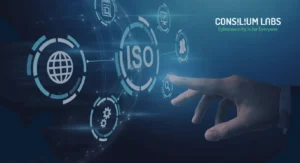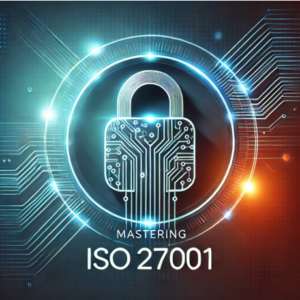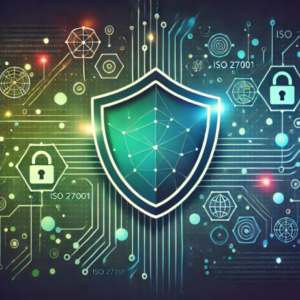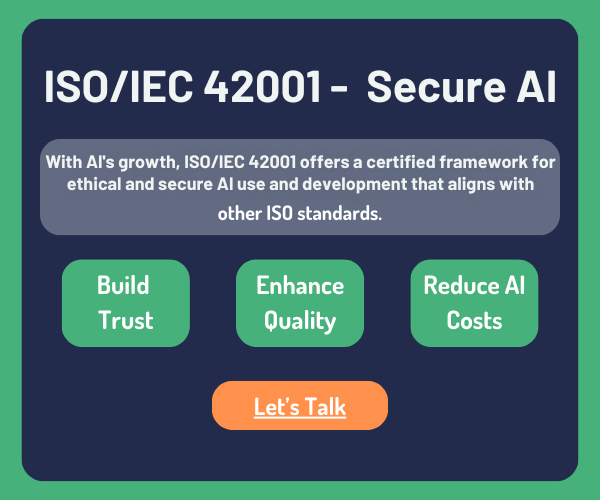In this article
ISO 42001 vs. ISO 27001: How to Build a Future-Ready Governance Strategy
- Elad Motola
Discover What’s Ahead in Compliance, Governance, and Cyber Risk Management
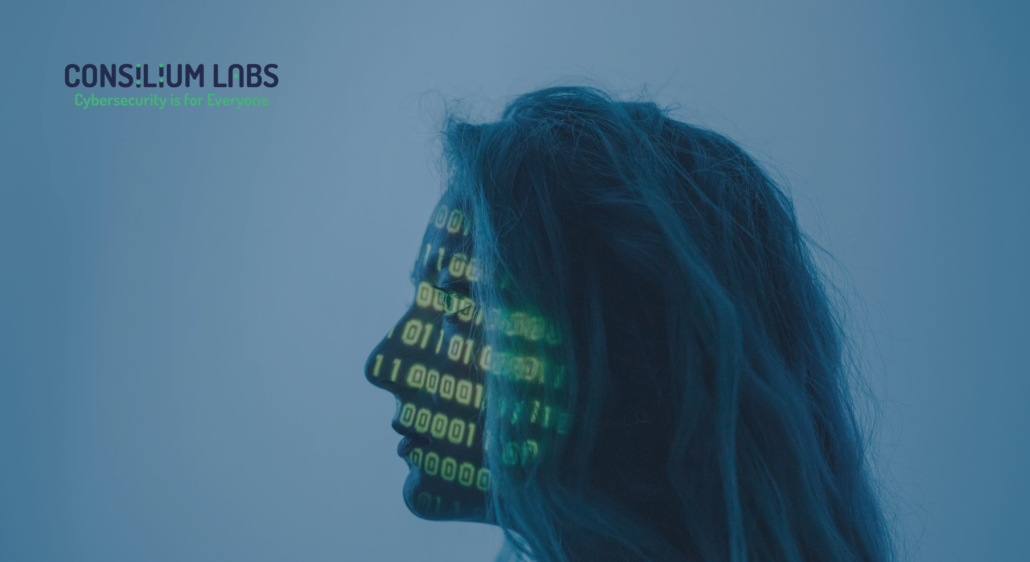
As artificial intelligence becomes integral to modern business, aligning security and governance frameworks is no longer optional—it’s essential. Two ISO standards are setting the pace:
- ISO/IEC 27001 for Information Security Management Systems (ISMS)
- ISO/IEC 42001 for Artificial Intelligence Management Systems (AIMS)
While both standards aim to reduce risk and establish control, they address distinct yet complementary governance priorities. For enterprises seeking to lead in secure innovation, understanding these frameworks is mission-critical.
What Is ISO 27001?
ISO/IEC 27001 is the international standard for establishing, implementing, maintaining, and continually improving an information security management system. It helps organizations:
- Protect confidential and sensitive data
- Manage cybersecurity threats
- Comply with global regulations like GDPR and HIPAA
- Build stakeholder trust through third-party certification
It’s widely adopted in sectors such as healthcare, fintech, and SaaS—especially where regulatory and contractual data requirements are high.
Why Is ISO 27001 Important?
In today’s world, cybersecurity and Infosec (Information Security) are crucial. ISO 27001 helps organizations minimize the risk of data breaches, comply with regulations, and build trust with customers. The standard focuses on both preventing risks and improving your systems over time.
What Is ISO 42001?
This year’s agenda is built around urgent transformation—and the tools to drive it.
Launched in 2023, ISO/IEC 42001 is the first global AI governance standard. It provides a management framework to ensure:
- Safe, ethical, and transparent AI development
- Effective risk management around AI use
- Alignment with evolving laws like the EU AI Act
- Continuous improvement of AI systems through auditability and oversight
This is particularly relevant for AI product teams, data science leaders, and compliance-focused tech companies building or using AI tools.
Category | ISO/IEC 27001 | ISO/IEC 42001 |
Focus Area | Information security, data protection | Responsible AI governance and ethics |
Management System | ISMS | AIMS |
Core Risks Addressed | Cyberattacks, data breaches, unauthorized access | Algorithmic bias, opacity, misuse, lack of explainability |
Industries | All sectors handling sensitive or regulated data | Organizations designing, deploying, or using AI |
Controls | ISO 27002 Annex A | Custom Annex A tailored to AI risks and lifecycle controls |
Ethical Component | Optional or implied | Explicit and required (e.g., fairness, human oversight) |
Legal Alignment | GDPR, SOC 2, HIPAA, etc. | EU AI Act, NIST AI RMF, ISO 27001 cross-alignment |
Where These Standards Overlap
Though their scopes differ, both ISO 27001 and ISO 42001 require:
Structured Risk Management
Each standard demands the identification and mitigation of relevant threats—cybersecurity or AI-specific.
Policy, Procedures, and Documentation
Robust documentation, version control, and audit readiness are essential in both standards.
Leadership Commitment
Top-level management must ensure resource allocation, internal accountability, and continuous improvement.
Framework Integration
ISO 42001 and ISO 27001 can work in parallel, offering a unified governance approach for high-stakes digital environments.
When to Adopt Each—or Both
Use Case | Recommended Standard(s) |
Managing personal or customer data without AI | ISO 27001 only |
Building AI platforms without sensitive data handling | ISO 42001 only |
Using AI in a secure, compliance-driven environment | Both ISO 27001 + ISO 42001 |
Organizations operating in regulated markets with AI workflows—such as finance, healthcare, defense, and public sector—should strongly consider dual certification for end-to-end coverage.
Why It Matters Now
AI is evolving rapidly—and with it, new ethical, legal, and operational risks are emerging. Traditional data protection is no longer enough.
Modern enterprises must think holistically:
- Protect data (ISO 27001)
- Management of AI systems
Together, these frameworks reinforce trust, reduce exposure, and prepare your organization for auditable, scalable compliance.
How Consilium Labs Can Help
We guide forward-thinking enterprises through both certifications—from readiness assessments to implementation and audit support. Our clients rely on us for:
- AI governance design aligned with ISO 42001
- Security framework alignment under ISO 27001
- Integrated GRC programs that reduce friction and accelerate certification
- Real-world compliance outcomes, not checkbox exercises
📩 Ready to operationalize your compliance strategy?
Let’s start the conversation →
Other Articles
Let's get in touch
Start your audit now. Achieving cybersecurity audit can be complex. We have made it our mission to simplify the process, giving you access to the professional expertise you need to prepare your company for the future. Get in touch with us today!


